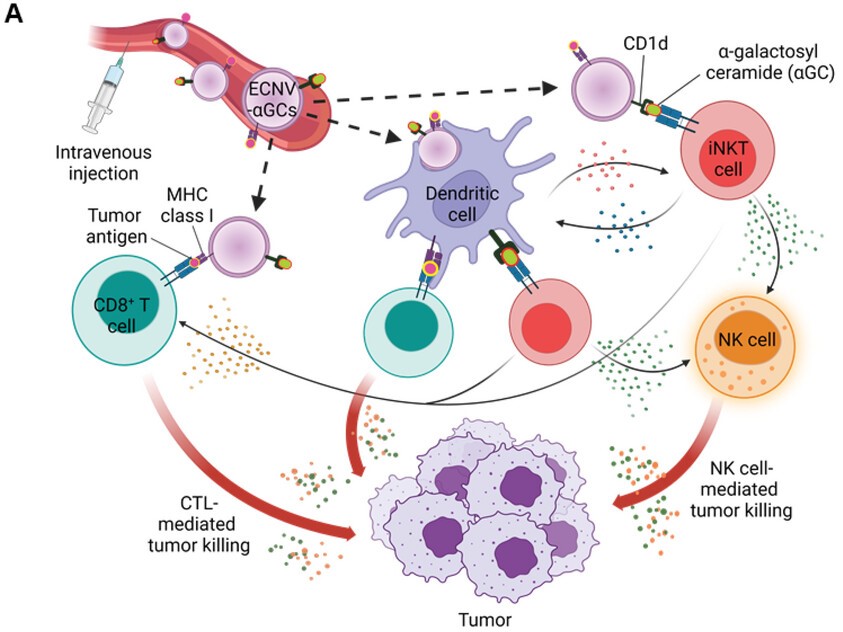Our Research Interest

1
Immunometabolism
Immunometabolism is an emerging field of research that explores the intricate relationship between the immune system and metabolic processes. This interdisciplinary domain examines how metabolic pathways influence immune cell differentiation and function and how immune responses, in turn, affect metabolic homeostasis.
Our lab investigates various aspects of immunometabolism, including:
We study how different metabolic states impact the function, development, and activation of immune cells. We are particularly interested how lipid metabolic pathways impact immune cells including T cells, B cells and dendritic cells. This includes understanding how lipid components and lipids-activated transcription factors control metabolic pathways like glycolysis, oxidative phosphorylation, and fatty acid oxidation in immune cells and how they affect immune responses in homeostasis and disease settings.
By elucidating the connections between metabolism and immunity, we seek to identify novel therapeutic targets and strategies. Our goal is to develop interventions that can modulate immune responses to treat or prevent immunologic disorders by targeting metabolic pathways in immune cells.
We study how aging alters the function and composition of immune cells, including T cells, B cells, and innate immune cells with specific emphasis on the role of metabolic pathways. Immunosenescence may act as a critical factor in cancer, autoimmune diseases and infectious diseases in elderly. Cellular senescence does not always correlate with aging, and we are interested in understanding the mechanism of premature aging in immune cells. We also explore potential interventions and therapeutic approaches to mitigate the effects of immunosenescence.
Through our research, we aim to advance the understanding of how metabolic and immune systems interact, ultimately leading to improved strategies for managing and treating a range of diseases.
2
Tissue Immunity
Tissue immunity refers to the specialized immune responses that occur within specific tissues and organs of the body. This field of study focuses on how immune cells and factors interact within different tissue environments to maintain homeostasis, defend against pathogens, and modulate tissue repair and inflammation.
In our lab, we explore several key areas of tissue immunity:
We investigate how tissue-infiltrating immune cells, particularly T cells and dendritic cells, operate within various tissues, including the skin, lungs, central nervous systems and gastrointestinal tract. Understanding these localized immune responses helps us to comprehend how tissues maintain health and resist infections and inflammation. By exploring how immune dysfunction affects tissue health, we aim to understand the underlying causes of tissue inflammation including allergic and autoimmune disorders. Our research seeks to identify novel therapeutic targets to address these conditions.
Our research delves into the unique immune mechanisms that are tailored to the needs of specific tissues. This includes studying how tissue-specific microenvironments influence immune cell behavior and function. In addition, we aim to study the role of immune cells in tissue inflammation and repair processes. Our goal is to uncover novel mechanisms by which immune cells contribute to tissue damage and repair, and to develop strategies to modulate these responses for better clinical outcomes.
Our lab is dedicated to advancing the understanding of tissue immunity to improve the management of diseases and enhance tissue health.


3
Cancer Immunology
Cancer immunology is the study of the complex interactions between the immune system and cancer cells. This field aims to understand how the immune system recognizes and combats cancer, as well as how tumors evade immune surveillance and develop resistance to treatments.
In our lab, we focus on several critical areas of cancer immunology:
We investigate how tumors alter immune responses including mechanisms by which cancer cells evade detection and destruction by the immune system. In particular, we are interested in dissecting molecular mechanisms underlying exhaustion and malfunction of T cells and NK cells, and emergence of immunosuppressive immune cells including Treg and myeloid cells. Understanding these processes helps us identify new ways to enhance immune recognition and targeting of tumors.
Our research explores innovative immunotherapeutic approaches, such as cancer vaccines. We aim to develop and refine strategies that harness the immune system to effectively target and eliminate cancer cells. We are particularly interested in developing therapeutic cancer vaccines by using autologous cancer cells as a source of neoantigens and tumor associated antigens.
Our goal is to advance the understanding of cancer-immunity dynamics to improve treatment, and management of cancer.
4
T Cell Biology
As a key immune cell population of adaptive immunity, T cells are essential for recognizing and responding to pathogens, as well as for maintaining immune system balance and memory.
In our lab, we focus on several key areas of T cell biology:
We investigate the processes by which T cells differentiate into various subsets, including diverse subsets of helper, cytotoxic, and regulatory T cells. Unlike those in the lymph nodes, effector T cells in the inflamed tissues often re-differentiate into different effector cells or into polyfunctional T cells producing multiple cytokines. Understanding these processes is vital for comprehending T cell function and behavior.
We explore the role of T cells in various diseases, including infections, autoimmune disorders, allergies and cancers. This includes studying the signaling pathways and molecular interactions that regulate T cell activation and function, and their intereaction with other immune cells and non-immune tissue cells in disease settings. Our aim is to uncover how T cell dysfunction contributes to these conditions and to identify potential therapeutic targets.
Our research is dedicated to advancing the understanding of T cell biology to better understand the chronic immune diseases and to enhance immune-based therapies and improve disease management.

